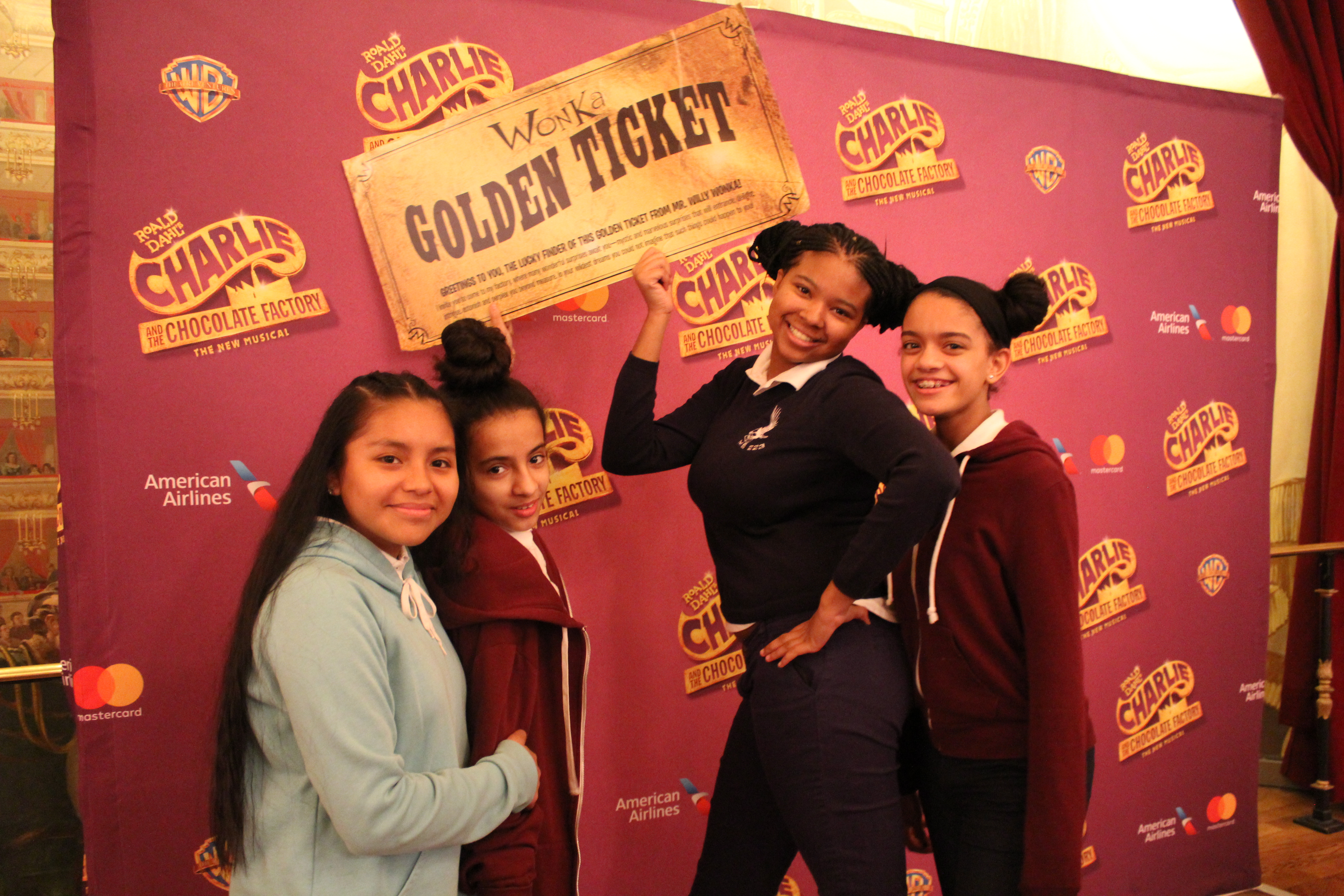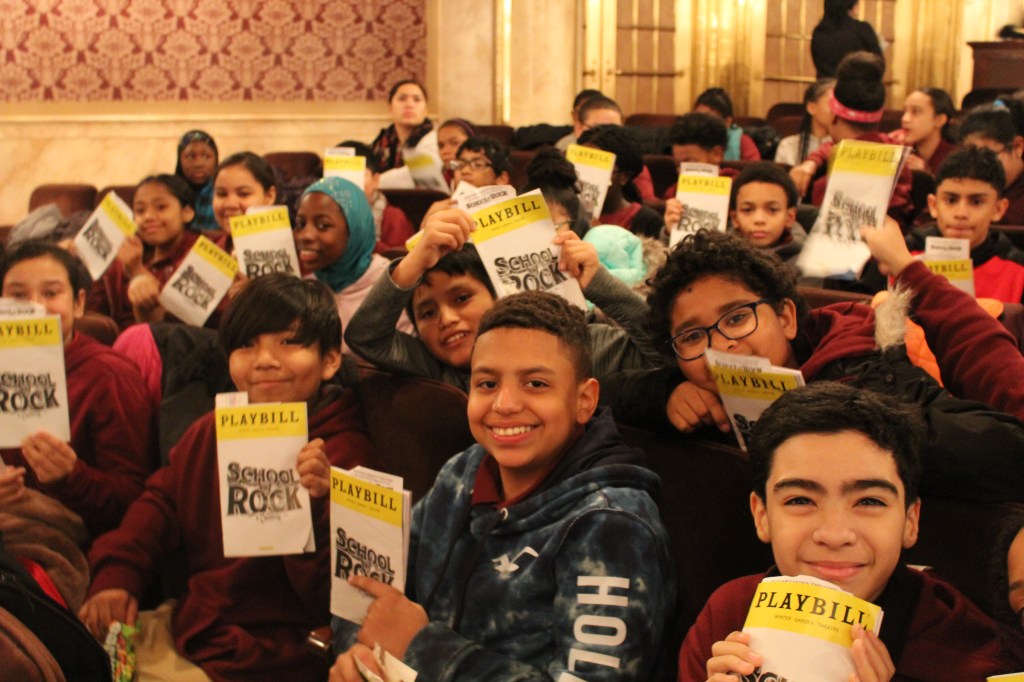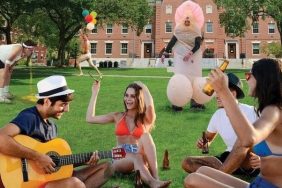About seven or eight years ago, I was out at a dinner with a friend who is a middle school principal. And he knew I worked in the live event space and that I work on Broadway and he said, “Hey, can you help me get tickets to see Spider-Man: Turn Off The Dark for some of the high-performing students at my school?” He was looking for around 20 or 30 tickets for a few exceptional students.
He began telling me more about his school. It was the highest performing school in its district, which also happened to be one of the poorest congressional districts in the entire country. And it was right in the city, in the South Bronx. I was blown away. As he started to paint me this picture, I said—if the whole school is successful, what if we found a way for all of them to go? And that’s what kickstarted Situation Project.
I didn’t grow up with arts and culture and that experience in my life—I kind of discovered it later on, and it’s an eye-opening experience. It’s avocado for the soul. It’s nourishing. You see things that you wouldn’t normally get a chance to see, it opens your mind, it broadens your world view. So I got passionate about it. And I’m not an educator, I don’t come from that space. But I was a public school student in New York my whole life. So I’m a supporter of it.
Behind the scenes, I also knew through my work at Situation that there are a lot of Broadway seats that go empty every year. Statistically, about 2 million seats go empty every single year. It’s been that way for the past 10-15 years consistently. So I spoke with the producers of the show and I asked what would be involved with me getting 300 seats or so, because I want to bring a whole school to see a performance–-how can we make this happen?
Each year, my company sends little thank you gifts to clients—popcorn tins or little things like that just to say thank you—and I started thinking we could use the money we spend on that towards buying some of these unsold tickets. So we brokered a deal with the theaters, getting them onboard by explaining that we have the opportunity to do something great for schools with very little resources.
And it all came together. We went up to the school and had “Playbill training,” just explaining the theater-going experience and etiquette. Less than 2% of the students had ever been inside a Broadway theater. To them, “Broadway” was a street, not an industry. We then filled up six school buses and drove every student down to see Spider-Man and it was amazing. Afterwards, the theater manager said it was the best group of kids they’d ever had in there. The entire experience was phenomenal.
The producers of Spider-Man were so impressed, they asked if they could go deeper. They arranged for the cast and the band to go up to the school and perform and helped with classroom exercises teaching the kids about how theater can help you engage in arts, sciences…all these new ways to think about and utilize their education. All the ways theater can help grow their education. So that was like “Year One” of the idea.
Once you see it come together than you see the impact on these kids, we just couldn’t stop there. We had to keep this going.
The next year, we again took that “popcorn” money and set about organizing another show involving two additional schools. I wanted to see if we could expand the program. Because the idea started to become very clear for me, and I started researching. There are two million empty seats on Broadway with an average ticket price of $100…it’s leaving about $200 million in equity empty every day. There are one million New York City public school students. So that allows enough for each New York City student in theory to see two shows a year. And in the process we’re creating better citizens. Why would we not want to do that? And for the industry we’re also building future ticket buyers, future talent–actors, writers, directors, carpenters–they are all in these communities. From the point forward, we brought a couple more schools on, all high-performing schools in economically struggling areas. Every kid in those schools sees two shows a year guaranteed. After each show we organize opportunities for the kids to meet and talk to the cast and theater workers. We also have mentorship programs where the kids will come down and do these cool experiences, learning about different careers. We’re all in. I’ve spoken at graduations, I’ve met with the PTAs, we’ve been involved in career days, we fundraise for it, and we’re now seven years in. We’ve delivered 17,000 experiences to date.

At Situation, our mantra is “We believe the world is a better place when people are doing things rather than having things.” We connect people to amazing experiences. The arts are a vehicle to making better souls. We need to give these kids access. Most of these schools, their arts and culture funding has been cut. Situation Project is their arts program. The future leaders of tomorrow are going to have a broader word view, and the way to get the broadest world view is through the arts. And, unfortunately, if you have money in this country, you will have an arts education. If you don’t…you’re being left off the table. So we start with kids in the 6th and 7th grade, so by the time they graduate they will have seen at least six Broadway shows. One night we arranged for a group of kids to have dinner with the cast of Charlie and the Chocolate Factory at 5 Napkin Burger on Ninth Avenue and then took the kids back to see how the kitchen operated. Just fully immersive experiences, showing them this community that exists around Broadway.
Prior to Situation Project, the amount of kids who applied to performing arts schools was maybe zero to two out of a class of 100. By the time the first Project class was ready to graduate, 16 kids applied. They never even considered it a possible career before. It’s a significant, clear impact.
It all comes down to that imbalance. Ninety-five percent of the kids in our program live in poverty. By nature of the zip code they were born in, they don’t have access to some of the most amazing experiences NYC–their hometown–has to offer. What we’ve done – which is a true collaboration between our agency, these schools, and the Broadway community–is simply to identify that inequity and to use the existing resources we have to help address it. My hope is that this is a model that can inspire communities across the country to act and support the students (or anyone in need) in their own backyard.
Damian Bazadona is founder and president of Situation, a digital marketing agency based in New York City known for connecting people with amazing brand experiences. From the Super Bowl to Broadway’s biggest brands, Damian has worked on NYC’s most epic events. Through creative, media, and technology, his agency captures and promotes why a brand is truly worth experiencing in ways that move people to action. Outside of Situation, Damian acts as a speaker and a thought leader and also passionately invests in arts education and community involvement through the non-profit he founded, Situation Project.







